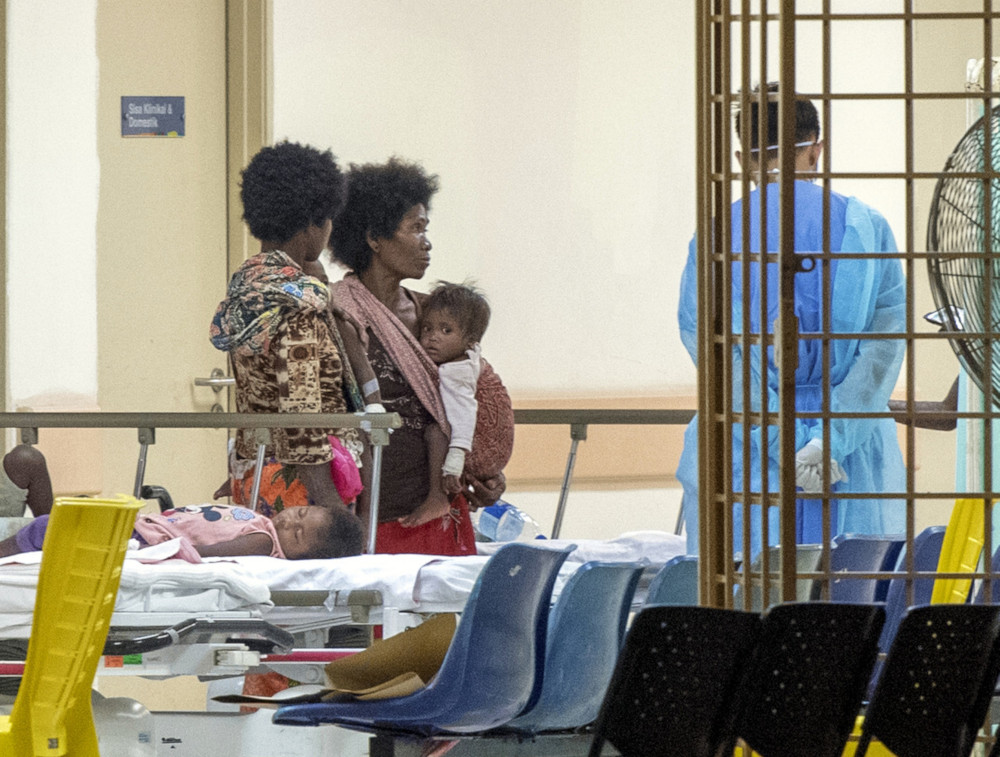KUALA LUMPUR, Sept 8 — A private medical doctors group today accused the government of attempting to conceal the real reason behind the death of several Batek tribe members in Kuala Koh, by attributing the cause of their deaths to a measles outbreak.
British media agency The Guardian's sister publication, The Observer reported the Federation of Private Medical Practitioners’ Associations Malaysia (FPMPAM) president Dr Steven Chow as making the accusation, claiming that there were active outside factors which contributed to the fatalities.
Dr Chow said that chemical poisoning, especially manganese, holds a detrimental effect up to 10 times for the Batek tribe, whose immune systems are already affected by chronic malnutrition.
“Based on our research and the pattern of deaths, there was an outside environmental factor of either poisoning by another chemical, another pollutant or an extremely high level of manganese from the mine that was at least partially responsible for the spate of deaths.
“The government has promised us a report and an investigation, but so far nothing,” said Dr Chow, who has reportedly visited the Batek tribe many times.
The Observer reported that private testing conducted by the FPMPAM, and seen by the daily, showed unhealthy levels of metals, including manganese, and even faecal material in the Batek’s sole water supply, adding that one water source even contained 25 folds the amount of manganese, from what is deemed as healthy for human consumption, by the Ministry of Health (MOH).
The report said that FPMPAM had also submitted a report of its findings to MOH, labelling the tribe members habitat as a “death trap”, and that the water supply relied on by them was “not suitable for human consumption unless it is extensively treated”.
“I think the government wants to bury this matter and move on
“There should be accountability for these deaths that goes right to the top, but I doubt it will ever happen. In 20 years I would not be surprised if there is barely any of the tribe left,” Dr Chow said.
The report said that the only water supply for the Batek community in the area stems from a mountain stream that is then collected in a small pond before being piped in the village and that the water was always clear before a manganese mining operation began in the area in 2016.
The Observer had in its report, said that it had also visited the said water source, and noticed murky brown water with the presence of reddish-black stones, which are waste from the neighboring manganese mine, scattered around.
“We can see with our own eyes, when it rains, toxic waste from the mine flows into the water and it changes colour to red or brown, gets contaminated,” a Batek tribesman, Mohammad Pokok, 42, was quoted saying.
“But nobody cares if we are drinking poisoned water. We don’t know for sure but I think it is one of the reasons for the sickness,” Mohammad said.
In June, Bernama reported that the Mineral and Geoscience Department (JMG) has sealed the manganese mine in Aring 11 Kuala Koh, Gua Musang, since June 11 after mining activities there were found to have been done without the agency's permission.
Kelantan Mentri Besar Datuk Ahmad Yakob reportedly said although the mining licenCe was issued by the state government, permission had to be obtained from the JMG.
Previously, Kelantan Pakatan Harapan (PH) chairman Datuk Husam Musa called for an anti-graft investigation to be carried out, following the death toll involving the Batek tribe members.
The senator said that investigations must be carried out to determine if the deaths were due to the contamination of a pond that the tribe members relied on for their water source.
Deputy Prime Minister Datuk Seri Dr Wan Azizah Wan Ismail had on June 14, said that the water supply in Kuala Koh, in Gua Musang, especially in the area near the Batek tribe members' village, was tested to be normal, and confined to all the national drinking water specifications, for raw water source.
Utusan Malaysia previously reported trained medical specialist saying that this was confirmed via lab testing of the water sample, which was carried out by the Chemistry Department.
The Health Ministry on June 17 revealed that the ailment afflicting dozens of the Batek Orang Asli, turned out to be measles.
Its laboratory results as of June 15 confirmed that 37 people from the same Gua Musang village tested positive for measles.
Health Minister Datuk Seri Dzulkefly Ahmad said his ministry had dealt with 112 measles cases in the village since early June with the official death toll at three so far, though it believes the other 15 fatalities may be related.



















